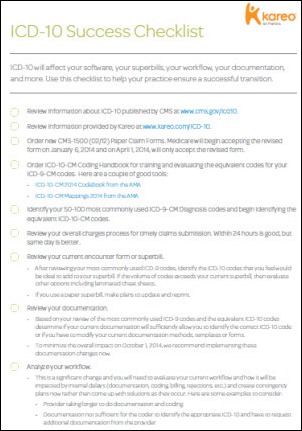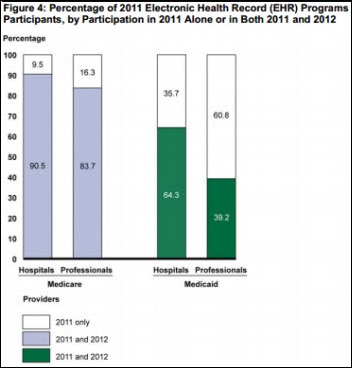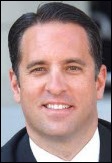Re: Walmart Health: Just had a great dental visit this morning, which was preceded by helpful reminders from Epic, and…
News 3/11/14
Primary care providers need EHRs to move beyond documentation to interpreting and tracking information over time, according to an AHRQ-supported article.The authors note that EHRs are currently focused on disease rather than the whole person and ignore factors such as personal risk, behaviors, family structure, and occupational and environmental influences. Stage 3 MU focus needs to include not only an emphasis on outcomes, but also EHR functionality, including the expanded use of patient portals, integration with better external applications, and advancement of national infrastructure and policies.
Twenty-two legislators also weigh in on Stage 3 MU criteria and ask HHS to consider ways to reduce health disparities by leveraging HIT. Some of their specific recommendations for inclusion: improved data collection requirements and better use of collected data; increased functionality to support health literacy and communication; and, better access to health information and healthcare on mobile platforms.
Kareo introduces an ICD-10 Success Plan Checklist poster that is in a tasked-based format and helps practices identify specific transition tasks, deadlines, and project owners.
Six Republican senators call on CMS to “immediately clarify details” for its plan to grant MU Stage 2 exemptions to certain providers. During her HIMSS keynote address last month, CMS Administrator Marilyn Tavenner confirmed that the deadline would not be extended, though some “narrow” hardship exemptions would be granted. All politics aside, the senators are right: the clock is ticking and providers deserve some clarity in quick order.
A Government Accountability Office report finds that participation in the MU program increased substantially from 2011 to 2012 but 16.3 percent of EPs participating in the Medicare program dropped out in 2012, as well as 60.8 percent of Medicaid EPs. Some reasons noted for the dropouts include providers had switched EHRs and weren’t ready in time to submit EHR data; providers were unaware of program deadlines and the need to participate in the program again; and, providers found more difficulties than anticipated going from a 90-day reporting period in the first year to a full-year reporting period in the second year. The GAO notes that estimating future participation in EHR programs is difficult because of various program changes, the increasingly stringent MU measures, and the introduction of penalties in 2015. My guess on EP participation: though providers will continue to embrace EHRs, an increasing number of providers will opt out of the MU program because the financial incentives and avoidance of penalties aren’t worth the effort.
A Chat with Albert Santalo, president and CEO of CareCloud
During HIMSS I spent a few minutes chatting with CareCloud CEO and President Albert Santalo. Here’s a short summary of our conversation:
- CareCloud achieved 100 percent growth in 2013.
- Currently the company has about 5,000 providers on its system; about 20-25 percent of those are on EMR.
- Santalo expects to add 8,000 new customers in 2014.
- The company primarily targets independent physician offices rather than large health systems with employed or affiliated providers.
- The EHR platform is certified for Stage 2 MU.
- I asked Santalo if and when the company would go public. He danced around the answer a bit but admitted an IPO is something that may happen within the next 18 months.
- While CareCloud has no plans to develop or sell a core in-patient system, the company will look to offer more products like CareCloud Community, which provides patient engagement and care collaboration tools that can be used across different venues of care.
- CareCloud views itself as one of athenahealth’s few direct competitors because both offer a cloud-base platform and a full range of RCM and back-office services. Unlike athenahealth, however, CareCloud customers are not required to subscribe to the full service model. Santalo believes that making the full RCM model optional has helped CareCloud win business with practices wanting to reserve the option of keeping billing in-house.
- Santalo said CareCloud’s KLAS scores are “getting better.” In looking at the KLAS website I believe CareCloud still falls into the “not-rated” category because of an insufficient number of customers ratings.
Email Inga.





